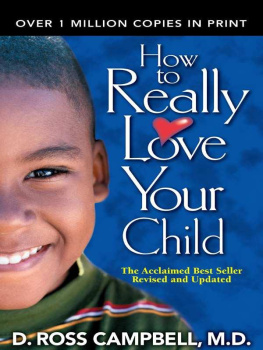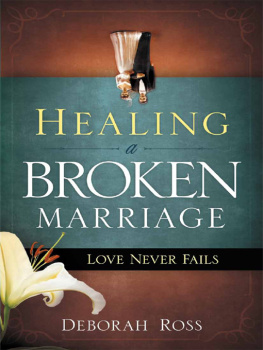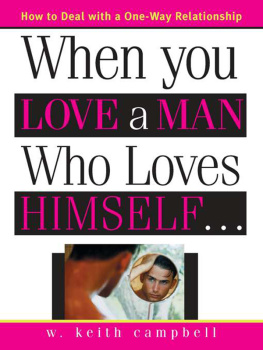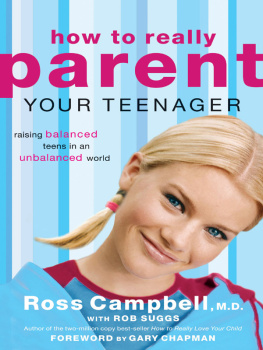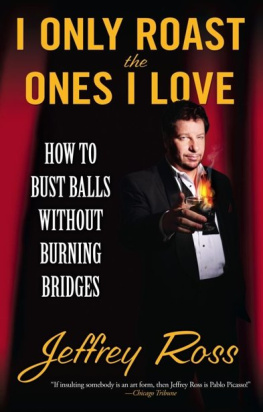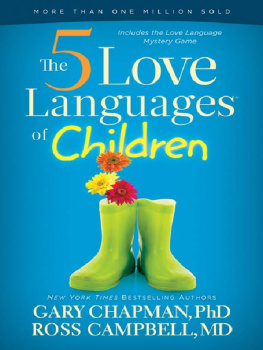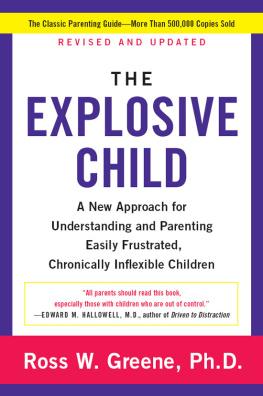D. Ross Campbell - How to Really Love Your Child
Here you can read online D. Ross Campbell - How to Really Love Your Child full text of the book (entire story) in english for free. Download pdf and epub, get meaning, cover and reviews about this ebook. year: 1977, publisher: David C Cook, genre: Children. Description of the work, (preface) as well as reviews are available. Best literature library LitArk.com created for fans of good reading and offers a wide selection of genres:
Romance novel
Science fiction
Adventure
Detective
Science
History
Home and family
Prose
Art
Politics
Computer
Non-fiction
Religion
Business
Children
Humor
Choose a favorite category and find really read worthwhile books. Enjoy immersion in the world of imagination, feel the emotions of the characters or learn something new for yourself, make an fascinating discovery.
- Book:How to Really Love Your Child
- Author:
- Publisher:David C Cook
- Genre:
- Year:1977
- Rating:3 / 5
- Favourites:Add to favourites
- Your mark:
- 60
- 1
- 2
- 3
- 4
- 5
How to Really Love Your Child: summary, description and annotation
We offer to read an annotation, description, summary or preface (depends on what the author of the book "How to Really Love Your Child" wrote himself). If you haven't found the necessary information about the book — write in the comments, we will try to find it.
How to Really Love Your Child — read online for free the complete book (whole text) full work
Below is the text of the book, divided by pages. System saving the place of the last page read, allows you to conveniently read the book "How to Really Love Your Child" online for free, without having to search again every time where you left off. Put a bookmark, and you can go to the page where you finished reading at any time.
Font size:
Interval:
Bookmark:



HOW TO REALLY LOVE YOUR CHILD
Published by David C Cook
4050 Lee Vance View
Colorado Springs, CO 80918 U.S.A.
David C Cook Distribution Canada
55 Woodslee Avenue, Paris, Ontario, Canada N3L 3E5
David C Cook U.K., Kingsway Communications
Eastbourne, East Sussex BN23 6NT, England
The graphic circle C logo is a registered trademark of David C Cook.
All rights reserved. Except for brief excerpts for review purposes, no part of this book may be reproduced or used in any form without written permission from the publisher.
Unless otherwise indicated, Scripture quotations are from the Holy Bible: New International Version NIV , 1973, 1978, 1984, International Bible Society. Other quotations are from the New American Standard Bible ( NASB ), the Lockman Foundation 1960, 1962, 1963, 1968, 1971, 1972, 1975, 1977; the King James Version of the Bible ( KJV ) (Public Domain.); and The Living Bible ( TLB ), 1971, Tyndale House Publishers, Wheaton, IL 60189. All quotations used by permission.
Library of Congress Cataloging-in-Publication Data
Campbell, Ross, 1936
How to really love your child / by Ross Campbell
p. cm.
ISBN 978-0-7814-3912-1 (ISBN 0-89693-066-1)
eISBN 978-0-7814-0604-8
1. Child rearingReligious aspectsChristianity 2. LoveReligious aspectsChristianity 3. Parent and child I. Title
BV4592.C35 1992
649.1019-dc20 92-12130
CIP
1977 Ross Campbell
First edition published by Victor Books in 1977 Ross Campbell
Reprint Editor: Susan Martins Miller
Interior: RJS Design
Second Edition 2003
Contents
This book hits us where we live. Yet, it does not condemn; rather, it tells us how to be parents in a different, more constructive fashion. It is compassionate without being permissive.
Parents never have been trained to be parents. They tend to rear a child without any real fixed standards. Even the successes seem to be primarily by accident. This book is designed to produce successes by intention.
Dr. Ross Campbell has something vitally valuable to sayand says it plainly so we can understand it. This psychiatrist establishes himself in this book as a man of deep personal insight, deep spiritual values, and a great sensitivity both to the children and their parents. He doesnt hesitate to share himself and his own family experiences in illustrating what he has to say.
This is a book you will want to read and rereadits that loaded with practical, usable information! Both your mind and your heart will tell you this book is true.
Ben Haden
Speaker, Changed Lives ,
Chattanooga, Tennessee
Never has the wonderful task of child rearing been so difficult. The influences upon the parent-child relationship have become mostly negativea real burden on precious parents. Our culture has undergone tremendous change in the last few years, putting a real strain on all parents. We see the results of these influences daily, from problems with a childs behavior to the development of unhealthy character patterns in many of our children.
This book is for parents of children younger than adolescents. Its intention is to give mothers and fathers an understandable and practical way of approaching their wonderful, yet awesome, task of raising each child. My concerns are the needs of children and how best to meet them.
Child rearing is in itself a complex venture, and most parents today have great difficulty. Unfortunately, the outpouring of books, articles, lectures, and seminars regarding children has largely frustrated and bewildered parentsdespite the fact much of the information is excellent.
Many books, articles, and lectures have honed in on one, or at most only a few specific aspects of child rearing without clearly defining the specific areas they cover. Consequently, many conscientious parents have earnestly attempted to apply what they have read or heard as the fundamental way of relating to a child, and often they fail.
Their failure is not usually due to error in the information parents read or hear, nor in the way parents apply it. Rather, the problem lies in the parents not having a general, balanced perspective on how to relate to a child. Most parents have the essential information, but they are confused or misinformed about when to apply which principle under what circumstance. Parents have been told what to do, but not when to do it, nor, in many cases, how to do it.
Discipline is a classic example. Excellent books and seminars on childhood address the issue of discipline but fail to make clear that discipline is only one way of relating to a child. Many parents, consequently, conclude that discipline is the basic and primary way of treating a child. This is an easy mistake to make, especially when one hears the statement, If you love your child, you must discipline your child. This statement is, of course, true. The tragedy is that many parents discipline almost constantly while showing little love to bring comfort to a child. Children in these homes tend to doubt that they are genuinely, unconditionally loved. So again, the problem is not whether to discipline; the problem is how to manifest our love to a child through discipline and when to show it in other more affectionate ways. Almost all parents deeply love their children, but few know how to transfer this heartfelt love from their hearts to the hearts of their children.
I address these problems in a plain, understandable way in order to demonstrate how to generally approach child rearing. In addition, I hope to provide information that helps parents determine the correct action for each situation. Of course, handling every circumstance correctly is impossible; however, the closer we come to this, the better parents we become, the more gratified we are, and the happier our children become.
Much of the material in this book has come from a lecture series that I have given over past years at numerous conferences on parent-child relationships around the world.
As Tommy was growing up, he was such a good boy, so well behaved, Esther Smith, her husband, Jim, at her side, began as the grieving parents unfolded their painful story in my counseling room. Yes, he seemed content and never gave us much trouble. We made sure he had the right experiencesScouts, baseball, church and all. Now he is 14 and is forever fighting with his brother and sisterbut thats just sibling rivalry, isnt it? Other than that, Tomhes no longer Tommyhas never been a real problem for us. Esther Smith continued, He is moody sometimes and goes to his room for long periods. But he has never been disrespectful or disobeyed or back-talked. His father saw to that.
Theres one thing we know he has gotten plenty of and thats discipline. In fact, thats the most puzzling thing of all. How can a child so well disciplined all his life suddenly begin running around with undisciplined peers and do the things they do? And show such disrespect for his parents and other adults? These kids even lie, steal, and drink alcohol. I cant trust Tom anymore. I cant talk with him. Hes so sullen and quiet. He wont even look at me. He doesnt seem to want anything to do with us. And hes doing so poorly in school this year.
When did you notice these changes in Tom? I asked.
Jim Smith looked up at the ceiling. Let me think. Hes 14 now, almost 15, he said. His grades were the first problem we noticed, about two years ago. During the last few months of sixth grade, we noticed he became bored, first with school, then with other things. He began to hate going to church. Later, Tom even lost interest in his friends and spent more and more time by himself, usually in his room. He talked less and less.
Next pageFont size:
Interval:
Bookmark:
Similar books «How to Really Love Your Child»
Look at similar books to How to Really Love Your Child. We have selected literature similar in name and meaning in the hope of providing readers with more options to find new, interesting, not yet read works.
Discussion, reviews of the book How to Really Love Your Child and just readers' own opinions. Leave your comments, write what you think about the work, its meaning or the main characters. Specify what exactly you liked and what you didn't like, and why you think so.

